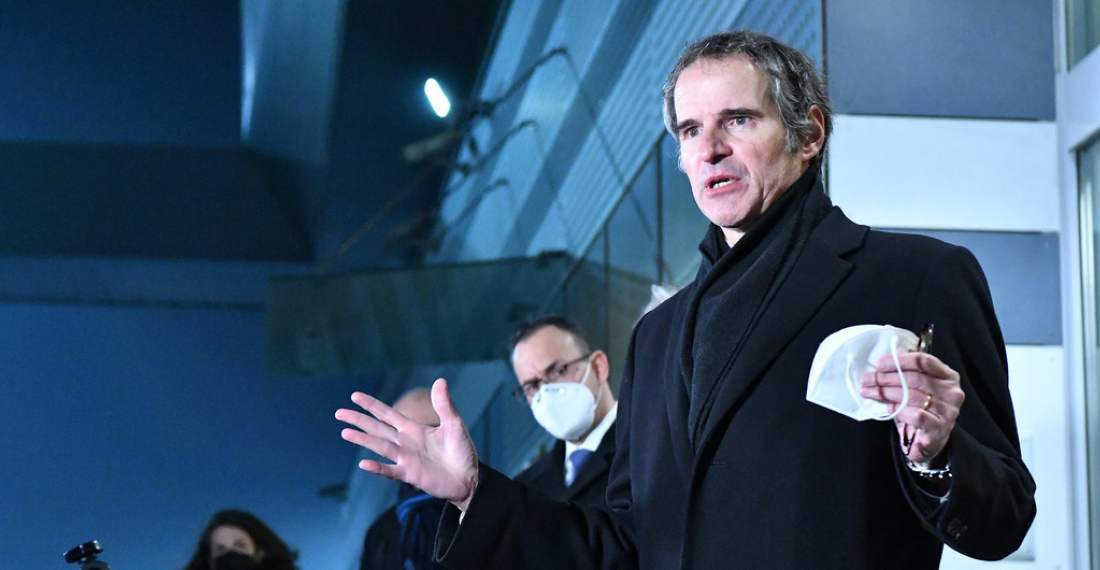The International Atomic Energy Agency (IAEA) has reached a temporary bilateral understanding with the Government of Iran to continue monitoring and verification tasks, thereby saving the nuclear deal, for now.
IAEA Director General Rafael Grossi arrived in Tehran on Saturday ahead of the deadline of withdrawal from the agreement where he engaged in two days of intensive diplomacy.
Last December, the Iranian Parliament voted to suspend some inspections in response to the sanctions implemented against Iran. According to the law, the Iranian administration is required to stop allowing IAEA inspections beyond the Safeguards Agreement, including the voluntary implementation of the Additional Protocol, if the other parties to the JCPOA failed to deliver on their commitments before a two-month deadline.
The temporary bilateral agreement suggested that Iran will stop the implementation of the voluntary measures as stipulated in the Iran nuclear agreement.
Grossi told the media that IAEA will continue with its necessary verification and monitoring activities for up to three months, according to the understanding reached between the two sides, he added.
"There is less access, let's face it. But still we were able to retain the necessary degree of monitoring and verification work," Grossi told reporters.
The temporary agreement will hopefully allow political discussions at the top level and help avoid a stalemate that could have ended the nuclear deal.
“What we agreed is something that is viable — it is useful to bridge this gap that we are having now, it salvages the situation now,” Grossi told reporters after landing back in Vienna.
Iranians ambassador in Vienna said that Iran will keep the IAEA’s monitoring information for three months without giving the IAEA access to them.
“During this period, the Agency will have no access to the data and the information remains exclusively with Iran,” he explained, emphasizing that the information will be given to the IAEA if the sanctions are lifted within three months.
“Otherwise, [the data] will be deleted forever,” the Iranian ambassador added.
Iran’s Foreign Minister Mohammad Javad Zarif, before meeting Grossi, signalled that Iran wanted to avoid an “impasse” over inspections, but also warned it could step further away from its commitments if Washington does not lift the sanctions.
Iran had already suspended the implementation of parts of its obligations under the deal in response to the US withdrawal from the Iranian nuclear deal in 2018 and the re-imposition of sanctions.
New US president Joe Biden has committed to rejoining talks on Tehran’s nuclear program, in a shift away from Trump’s policy of “maximum pressure” toward the Islamic republic.
Today, European foreign ministers will hold consultations in Brussels, in which US Secretary of State Anthony Blinken will participate via videoconferencing, and Iran's nuclear file will be an important point on the agenda.
Tehran had announced that it was studying a proposal submitted by the European Union to participate in an informal meeting attended by the United States with the rest of the members of the nuclear agreement, while an Iranian official confirmed that there is no meaning for any return to the agreement without verifying the seriousness of Washington.
Iranian Assistant Foreign Minister Abbas Araghchi said that his country is studying the European proposal to hold a meeting with the participation of Washington and Tehran.







